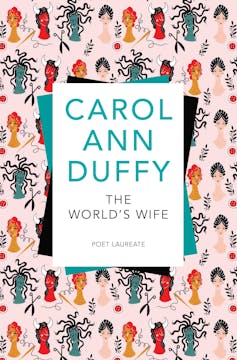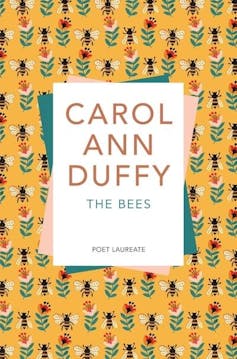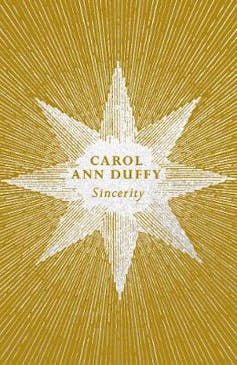کیرول این ڈفی: کس طرح قابل تعریف شاعر ن نئی زندگی حاصل کی ہے جس کے بعد اعزاز شپ کے بعد شاعر انعام یافتہ لوگوں کو قتل کرنے کے لئے استعمال کیا جاتا ہے،
یا -اسے ایک اور راستہ ڈالنے کے لئے، برطانیہ کے سرکاری قومی شاعر روایتی طور پر استعمال میں مرتے ہیں. "آگے کیا؟ "بس ایک سوال نہیں تھا کہ کسی بھی انعام یافتہ کو 1999-2009 سے اینڈریو موشن کے دس سالہ دور تک جواب دینے کی آسائش حاصل تھی، جس کے دوران کردار کی اصلاح نے اس عہدے کو مختصر کرکے محض ایک دہائی تک مختصر کردیا۔ آج کے شاعر کے اعزاز کو ان کے ہاتھوں پر کافی کام ہے کہ وہ اسپاٹ لائٹ چھوڑنے کے بعد معمول کی زندگی کو دوبارہ شروع کریں. اس موقع پر ایک کنسلٹنگ فرم کا حوالہ دینا عجیب لگ سکتا ہے، لیکن iLead -جس میں گاہکوں کی مدد کرتا ہے جنہوں نے نئی کام کی زندگی کی تعمیر کے لئے اعلی طاقتور ملازمتیں رکھی ہیں -ا
یک یادگار کیریئر "اعلی" کے بعد منتقل کرنے کے لئے چاہتے ہیں لوگوں کے لئے چار گنا حکمت عملی ہے. اس میں ماضی کی کامیابیوں، آرام، تدریس اور نئے تخلیقی ابلاغ کی عکاسی شامل ہے۔ کیرول این ڈفی، پہلی خاتون شاعرہ انعام یافتہ، اس وقت چاروں میں مصروف ہیں۔ یہ بتا رہا ہے کہ Covid-19 پینڈیمک کے دوران اس نے مئی 2019 میں قدم رکھنے کے بعد سے پریس میں اپنی پہلی حقیقی شکل بنائی جو اس نے ہمیشہ کیا ہے: عوام کو سکون اور بھلائی کے لئے ایک قوت کے طور پر شاعری پیش کرنا۔ ڈفی نے ایک نیا باہمی تعاون سے متعلق شاعری کا منصوبہ بھی تشکیل دیا ہے، خاص طور پر اندھیرے میں بھی تخلیقی صلاحیتوں کو تلاش کرکے سر پر تکلیف کا مقابلہ کیا ہے۔ اس کے تازہ ترین منصوبے، پھر، اس کی اپنی قابلیت کی عکاسی کرتے ہیں کہ وہ نہ صرف اعزاز شپ کا صرف اعزاز حاصل کرنے والے کام کا مقابلہ کریں، بلکہ شاید اتنا ہی اہم کام ہے۔
Carol Ann Duffy: how the acclaimed
poet has found new life after laureateship
Being the poet laureate used to kill people, or – to put it another way, the UK’s official national poet would traditionally die in harness. “What next?” simply wasn’t a question any laureate had the luxury of answering until Andrew Motion’s ten-year tenure from 1999-2009, during which reform of the role shortened the post to just a decade.
Today’s poet laureates have quite a job on their hands to resume normal life after they leave the spotlight. It may seem strange to quote a consulting firm at this point, but iLead – which assists clients who have held high-powered jobs to build new working lives – has a fourfold strategy for people wanting to move on after a momentous career “high”. This includes reflecting on past achievements, resting, teaching and finding new creative outlets.
Carol Ann Duffy, the first female poet laureate, is currently engaged in all four. It is telling that during the COVID-19 pandemic she made her first real appearance in the press since stepping down in May 2019 by doing what she has always done: offering poetry to the masses as a source of comfort and a force for good.
Duffy has also created a new collaborative poetry project, characteristically confronting suffering head-on by finding creativity even in darkness. Her latest plans, then, reflect her own ability to withstand not only the draining task of the laureateship itself, but the perhaps equally draining task of leaving it behind.
Business as usualMy work has shown elsewhere that the role of poet laureate is what you make it. It can seem a daunting job – a “publicly owned” role that seems to entitle the press or public to decide when poems should be written and what they should be written about. Duffy’s silence at the 2011 royal wedding, for example, has often been raised in criticism.
Yet Duffy has, quite rightly, shown determination to write only when she feels she has something she needs to say – so she did write a poem, Long Walk, on the occasion of the marriage of Prince Harry to Meghan Markle in 2018.
 Duffy’s first themed collection in 1999 focused on the women obscured behind famous male stories. Amazon
Duffy’s first themed collection in 1999 focused on the women obscured behind famous male stories. AmazonIn general terms, the laureateship’s fame appears not to have changed her – she remains fiercely private, self-effacing in public, and focused on the future of poetry, rather than on celebrity.
Duffy is better placed than most former laureates to answer the question “What next?” because she has reflected, in her work, on the subject of fresh starts for more than 20 years. A decade before her laureateship began, she ended her most famous collection, The World’s Wife (1999), with the poem Demeter. This was a feminist reworking of the Greek myth in which Persephone is bound to the underworld for half a year but allowed to spend the rest with her mother, Demeter. Duffy’s poem ends the collection by welcoming “the small shy mouth of a new moon” – in this context representing the symbol of a fresh start between mother and daughter.
Later poems also reflect on new beginnings. In Snow, from The Bees (2011) – Duffy’s first collection as laureate – the dead immobilise the living, literally stopping their path with scattered handfuls of ice and posing the question that any former poet laureate might well ask themselves and that, in this pandemic, may inspire us all:
Cold, inconvenienced, late, what will you do nowwith the gift of your left life?
Starting overThere is something deeply attractive about starting again, although Duffy suggests that this can only be done in the context of grieving the loss of old ways of life – as with 2005’s Rapture, which mourns the destruction of erotic bonds. Sincerity, meanwhile, which was published in 2018 – her final collection as laureate – laments change brought to the family unit by a child’s departure from home.
 ‘A love song to the lyric muse’: Duffy’s first collection as poet laureate. Amazon
‘A love song to the lyric muse’: Duffy’s first collection as poet laureate. AmazonYet starting over is also, Duffy reminds us, a communal political act. Her reaction to this has, thus far, been threefold. First, she stirs up trouble. Poems such as A Formal Complaint (Sincerity) remind us of the potential power of individual choices and voices. The capitalist political system with its focus on fake news and spin may seem too organised a force for mendacity for us to resist, but Duffy calls us quietly to observe one lie at a time, and to call out every half truth, every unjust social policy.
In so doing, a culture can remain sincere (hence the Sincerity of her collection’s title). This echoes the 20th-century writer and philosopher, Jiddu Krishnamurti, who famously wrote that: “It is no measure of health to be well adjusted to a profoundly sick society.”
Reasons to be cheerfulDuffy also offers us permission to be happy even in desperate times, and to seize joy in unlikely places. The Monkey (Sincerity) returns her to her 1970s surrealist roots.
 Duffy’s final collection as laureate is an exploration of loss and remembrance. Amazon
Duffy’s final collection as laureate is an exploration of loss and remembrance. AmazonThe impulse purchase, while on an Italian vacation, of a primate offers her a second chance at mothering which, however curious, brings real joy and makes her decide to stay firmly on holiday forever, marvelling “at the possible”.
The European sunshine, love returned, laughter, healthy living and the nightly banana daiquiri she references in the poem make far more sense – as does the very act of playing, with expectations of “retirement”, with words, with poetry itself – than the British cultural enshrinement of overwork, symbolised by this poem’s mention of professorship and laurel wreath.
Duffy ends the poem with an aplomb that those who feel crucified by the weight of our own worlds would do well to emulate:
As for my University Professorship, I shall resign.All best wishes to the new Laureate. The monkey is mine






0 Comments